Can Turtles Eat Worms? [Safe Worms List]
Rich in amino acids, protein, and iron, worms boast a nutritional profile that’s catching attention. They’re not just for soil anymore; there’s chatter about worms becoming the next big superfood craze. With their role in aiding digestion and tissue repair, it’s no wonder they’re gaining traction. But while they’re a dietary staple for many critters, what about our scaly companions, the turtles?
Turns out, worms are fair game for turtles. In the wild, these shelled wanderers often encounter worms in their menu, serving up vital protein, especially crucial for the young ones just starting out. Being omnivores, turtles appreciate the variety, happily munching on worms alongside a smorgasbord of other creepy crawlies.
So, do turtles really dig into worms as part of their grub? And if so, how many wrigglers would they munch down, and what species are we talking about here? Well, it’s not just about serving any old worm; quality matters. Knowing where those worms come from is key, as turtles aren’t picky eaters and might gobble up anything in sight.
This article delves into the safety of worms in a turtle’s diet. We’ll weigh the nutritional benefits and whether they’re truly a good fit for our shelled pals. Let’s peel back the layers and uncover the truth behind these intriguing questions.
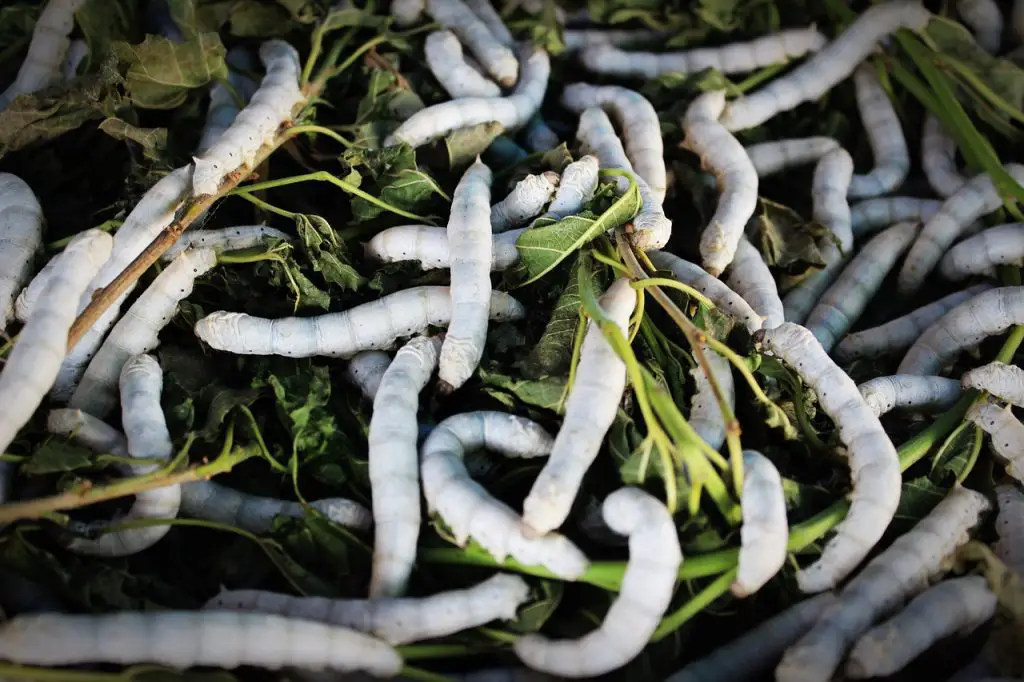
Are Worms Safe For Turtles?
Feasting on worms is not only a natural but also a beneficial habit for turtles. These wriggly creatures offer a rich source of essential nutrients like protein, fat, and more, crucial for a turtle’s overall health and vitality.
In the wild, turtles have quite the palate, happily munching on various insects, including worms. And there are plenty of good reasons why worms make such a tasty treat for them.
Take mealworms, for instance; they’re a treasure trove of amino acids, protein, and iron, promoting healthy digestion and tissue repair in turtles.
The worms that turtles encounter in their natural habitats serve as some of the healthiest meals they can find, packed with goodness tailored to their needs.
Particularly, when it comes to protein, worms play a vital role, especially during the early stages of a turtle’s life. At this developmental phase, protein is crucial, and worms provide just the right fuel to support growth and development.
Which Worms Are Safe For Turtles To Eat?
Turtles are renowned for their voracious appetite and will eagerly devour a wide array of foods, including various worms commonly found in their environment. When provided in moderation, the following types of worms are considered nutritious and beneficial for turtles:
- Earthworms
- Bloodworms
- Mealworms
- Waxworms
- Red Wigglers
- Grubs
- Butterworms
- Silkworms
- Hornworms
- Superworms
- American Nightcrawler
- Red Worms
Despite the diversity of these prehistoric reptiles, boasting over 300 recognized species, they all share one common trait: a distinct preference for specific types of food. Each species of turtle tends to have its own favorite delicacies, reflecting their individual dietary preferences and habits.
How To Feed Your Turtle Worms?
When handpicking worms from their soil cocoons, handle them with care, preferably using protective gloves if you’re not keen on getting your hands dirty.
Opt for the healthiest and largest worms you can find, as they’ll pack the most nutrients for your pet turtle.
Avoid introducing worms with an ammonia-like odor into your turtle’s aquarium, as this could indicate the need for more frequent cleaning.
When offering earthworms as food, you have a couple of options. You can either place dry earthworms directly onto the container’s floor or moisten them with water beforehand. However, be cautious, as earthworms may wriggle away from their intended location if placed directly.
To ensure your turtle gets its protein fix efficiently and with minimal mess, consider soaking the worms before feeding. This encourages them to settle near the bottom of the aquarium, making it easier for your pet to access its meal.
What To Consider While Feeding Worms To Your Turtles?
By now, the question of whether turtles munch on worms might seem straightforward. However, there are several important considerations to bear in mind, lest you and your shelled companion face potential pitfalls.
It’s crucial to recognize that turtles shouldn’t be indulged with an excess of worms. Overloading their diet with these wriggly delights can lead to issues such as obesity, pyramiding, and worm infestations.
Before serving up a worm feast for your turtle, here are a few key points to ponder:
- Pyramiding:
Turtles absolutely need protein to thrive. Yet, an overabundance of protein can trigger the development of thick layers of keratin on their shells, resulting in a condition known as pyramiding. This can irreversibly impact a turtle’s growth, causing scutes to elongate in a pyramid-like fashion. Since worms are packed with protein, it’s crucial to regulate their intake vigilantly to prevent this. - Obesity and Selective Eating:
Contrary to popular belief, turtles can develop a taste for particular foods, especially if they’re consistently offered enticing animal protein treats. However, excessive worm consumption can lead to obesity due to their high carbohydrate and fat content. This not only poses health risks but may also impede the turtle’s ability to perform basic activities like withdrawing into its shell or supporting its own weight. - Incorrect Calcium to Phosphate Balance:
While worms offer valuable nutrients, their calcium-to-phosphorus ratio might not align optimally with a turtle’s dietary needs. Too much phosphorus can hinder calcium absorption, potentially leading to health complications. It’s essential to monitor the quantity and balance of worms in your turtle’s diet to maintain overall health. - Pathogens and Parasites:
Feeding wild earthworms to your turtle carries the risk of introducing harmful parasites. These can lead to illness and discomfort for your pet. Opting for captive-reared earthworms is a safer choice to mitigate this risk. Keep an eye out for signs of parasitic infection and promptly address them with appropriate treatment. - Toxins:
Environmental factors, including the worms’ habitat and diet, can introduce toxins into your turtle’s system. For instance, worms from areas contaminated with heavy metals can pose serious health risks. Be cautious about sourcing worms from uncertain environments and consider alternative nutrient sources if unsure. - Pesticides:
Never feed your turtle earthworms treated with pesticides. These chemicals can be harmful if ingested and should be avoided at all costs. Exercise caution when collecting worms from outdoor areas, especially if they may have been exposed to pesticides.
In essence, while worms can offer valuable nutrients, their inclusion in a turtle’s diet requires careful consideration and moderation to ensure optimal health and well-being.
Can Worms Be Fed To Baby Turtles?
For newborn turtles, a moderate intake of worms is beneficial, particularly during their formative years when a high-protein diet is crucial for growth and development.
However, it’s important not to rely excessively on worms alone. When it comes to feeding newborn turtles, mealworms and waxworms are excellent choices due to their petite size. This makes them easier for tiny turtles to chew and swallow.
If you’re introducing worms to your newborn turtle’s diet, aim for smaller varieties whenever possible. Alternatively, if you only have access to larger worms, consider splitting them in half to create more manageable portions for your young reptile. This ensures that your newborn turtle receives the nutrients it needs without overwhelming its delicate digestive system.
Should Worms Be Fed To A Pet Turtle?
Absolutely! It’s perfectly fine to include worms in your pet turtle’s diet, but it’s essential to do so in moderation. For an extra boost of nutrients, consider offering gut-loaded worms.
Start by feeding the worms some cooked vegetables to ensure they’re nice and plump before becoming a delicious snack for your turtles. When gut-loading, it’s crucial to adjust the calcium-to-phosphorus ratio to 2:1 to ensure optimal nutrition.
After providing your turtles with healthy foods like collard greens, papaya, carrots, and squashes, wait 12 to 24 hours before introducing the gut-loaded worms. This ensures that your reptile gets the nourishment it needs.
Live worms offer the advantage of allowing you to maximize your turtle’s dietary intake since you can feed them directly. Plus, watching your turtles eagerly chase after wriggling worms, creating a bit of a mess in their excitement, is always an entertaining sight to behold.
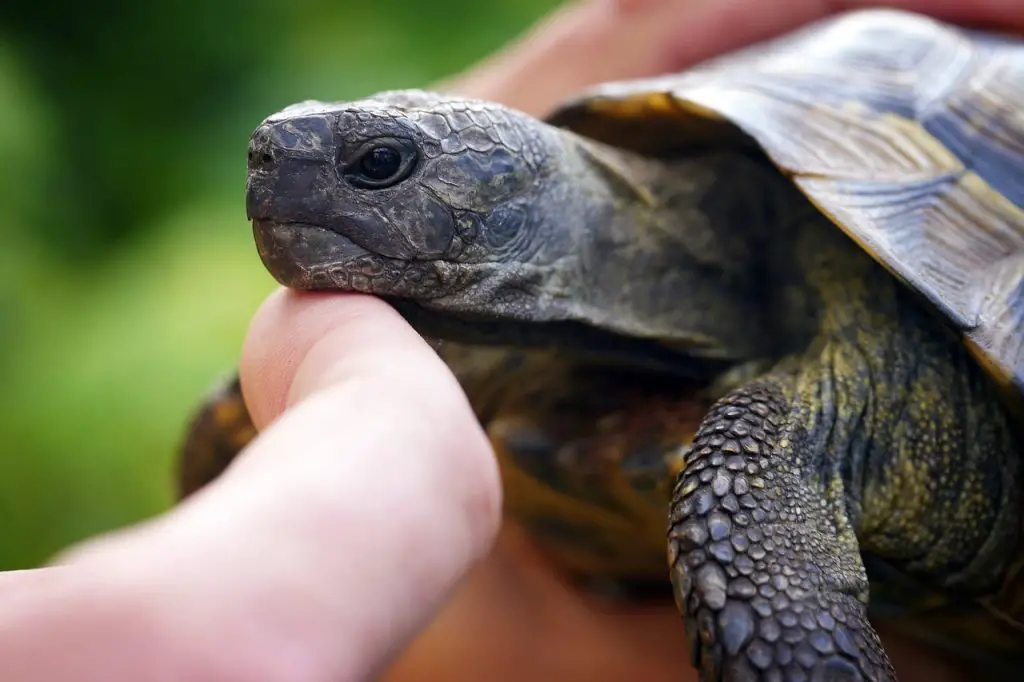
What Is The Daily Worm Intake For Turtles?
The best approach to feeding turtles in captivity is to offer them two or three worms at a time, once a week. Unlike their wild counterparts, captive turtles typically don’t engage in as much activity, so their feeding schedule should be adjusted accordingly.
It’s important to avoid overfeeding your turtle, as they often have a knack for begging for food. However, it’s crucial to remember that dietary and activity needs vary significantly among turtle species.
Factors such as age and species greatly influence their dietary requirements. As their caregiver, you’re in the best position to determine what’s best for your turtle.
While some pet owners may opt for a regular diet of earthworms, others may stick to a more regimented feeding plan of two worms per week. Ultimately, you’re the expert on your turtle and its specific needs, so feel free to adjust the feeding amount according to what works best for your pet.
Can You Give Your Turtle Live Worms?
Live worms are a fantastic addition to your turtle’s diet, boasting equal nutritional value to their freeze-dried counterparts. However, there are a few considerations to keep in mind, including cost and accessibility.
While live worms may be pricier and harder to come by independently, their benefits make them worth considering. Watching your turtle eagerly chase after worms in the aquarium not only provides entertainment but also stimulates its natural hunting instincts. This activity offers valuable exercise for your pet, contributing to its overall well-being.
Most pet stores carry live worms suitable for aquariums, but if you’re unable to find them there, try your local bait and tackle shop. Alternatively, you can search for live worms in the soil, but exercise caution. Avoid worms from fertilized grassy areas, as the fertilizers can be harmful to turtles and may even prove fatal if ingested.
By providing live worms as part of your turtle’s diet, you’re not only offering essential nutrients but also enriching its environment and promoting natural behaviors.
Can Turtles Eat Caterpillars?
It’s important to exercise caution when considering offering caterpillars to your pet turtle, as many species can pose a danger. In general, it’s best to avoid feeding caterpillars to your turtle altogether.
Be particularly wary of caterpillars that are brightly colored or have spiked hair, as these can often indicate toxicity. While some caterpillars may seem harmless, they can possess toxins that are harmful to turtles if ingested.
To ensure the safety of your pet, it’s best to stick to known safe foods and avoid introducing potentially harmful substances into their diet. When in doubt, it’s always better to err on the side of caution and avoid feeding caterpillars to your turtle altogether.
Can Turtles Eat Mealworms?
Mealworms, the larval stage of the mealworm beetle, are a nutritious option for reptiles like turtles, providing essential protein, fat, and other vital elements for their diet.
In fact, mealworm larvae boast a protein content ranging from 14 to 25 grams per 100 grams, along with ample amounts of key nutrients such as potassium, zinc, and iron.
Given their nutritional profile, mealworms are suitable for feeding to turtles. However, it’s recommended to gut-load them before serving to ensure they’re packed with even more nutrients.
Additionally, cultivating mealworms is relatively simple, as they can multiply quickly even in confined spaces. They’re not picky eaters either, happily munching on a variety of foods including oats, potatoes, carrots, and apples.
For those who find worm farming too cumbersome, there’s a convenient alternative: Downtown Pet Supply Dried Mealworms. These mealworms are reportedly raised on high-quality feed and promptly dried to preserve their crispy texture and rich flavor.
Whether you choose to raise your own mealworms or opt for a commercially available option, incorporating mealworms into your turtle’s diet can provide valuable nutritional benefits to support their overall health and well-being.
Can Turtles Eat Earthworms?
When it comes to feeding turtles, earthworms rank among the healthiest worm options available. With a protein content ranging from 60 to 70 percent, a lipid content of 11 to 20 percent, and mineral and vitamin contents spanning a broad range, earthworms offer a rich array of essential nutrients.
Aside from their nutritional value, earthworms are undeniably a delectable treat for turtles. You can easily obtain live earthworms from a pet shop, or if you prefer convenience, you can opt for dried earthworms available for purchase online. These dried alternatives still retain their high nutrient content, providing your pet with a healthy and flavorful meal option.
Do Turtles Eat Bloodworms?
Turtles also have a fondness for silkworms (Bombyx mori), despite a common misconception that these tiny worms might bite and harm turtles‘ intestines. Rest assured, there’s no need for concern as silkworms are thoroughly digested long before reaching the gut.
While turtles may enjoy the taste of silkworms and are known to tear them to shreds, it’s important to note that this insect is a costly commodity. Additionally, cultivating silkworms yourself is necessary, although they are relatively low-maintenance creatures.
Despite the initial investment and effort required, silkworms are considered one of the best protein options for reptiles, making them a worthwhile consideration for enriching your turtle’s diet.
Do Turtles Eat Waxworms?
Waxworms can serve as an excellent occasional treat for turtles, providing a tasty alternative in their diet. However, it’s important to exercise caution when feeding waxworms to turtles due to their high fat content.
While offering waxworms as an occasional treat can add variety to your turtle’s diet, it’s essential to avoid overfeeding them to prevent potential health issues such as waxworm infestations.
Compared to silkworms, waxworms are more readily available at pet shops, making them a convenient option for pet owners. However, it’s worth noting that waxworms are not as nutritionally dense as silkworms, so they should be used sparingly and as part of a balanced diet for your turtle.

Do Snapping Turtles Eat Worms?
Indeed, worms hold a special place in the menu of snapping turtles, serving as a favorite snack. However, these sharp-toothed reptiles have an eclectic palate beyond just worms.
Snapping turtles aren’t confined to a diet of worms alone; they’re known to devour a variety of prey, including fish, frogs, snakes, and even ducks.
While feeding worms to snapping turtles might not be the most economical option, they can still be offered as occasional treats to satisfy their hunger and provide dietary variety.
Do Painted Turtles Eat Worms?
Worms hold a special place as a favored delicacy among painted turtles, who actively forage for a diverse range of prey, including these wriggly creatures in their natural habitat.
While worms can provide valuable protein for painted turtles, it’s important to note that they shouldn’t be solely relied upon to meet their nutritional needs. Protein should ideally constitute 30–45% of a painted turtle’s daily calorie intake, and worms alone may not suffice.
Regularly feeding painted turtles worms may lead to them developing aversions to this food source over time. To ensure a balanced diet, it’s recommended to supplement their protein intake with a variety of sources, including vegetables and pellets. This approach not only provides essential nutrients but also helps to prevent dietary monotony for these captivating reptiles.
Do Box Turtles Eat Worms?
To fulfill their protein needs, box turtles can benefit from incorporating a few worms into their diet once a week.
A balanced diet for box turtles typically consists of half plant-based foods and half animal-based foods. Earthworms, being a common prey item for terrestrial box turtles in the wild, serve as a natural and nutritious source of protein for them.
Do Red-Eared Sliders Eat Worms?
Red-eared sliders undeniably have a strong affinity for worms, often eagerly pleading for just one more when presented with these wriggly delights.
Their voracious appetite knows no bounds when it comes to worms, as their size allows them to effortlessly devour any type of worm with gusto.
Before You Go…
Because turtles are omnivores, they can obtain essential protein from worms, which are a primary food source for most turtle breeds, whether in the wild or kept as pets.
To ensure optimal care for your turtle, it’s important to be knowledgeable about the various worm species it may consume.
Dried and canned worms, as well as commercially made varieties, are readily accessible at pet stores.
However, live worms typically have lower protein content compared to professionally manufactured worms, and they also pose a higher health risk to your pet. Therefore, it’s essential to regularly deworm them.
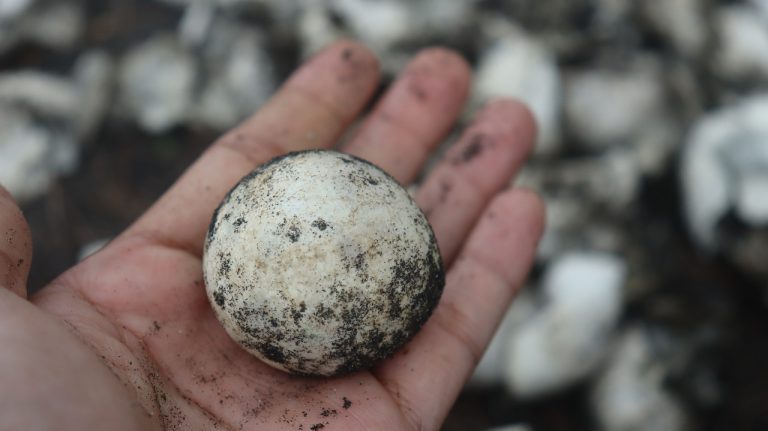
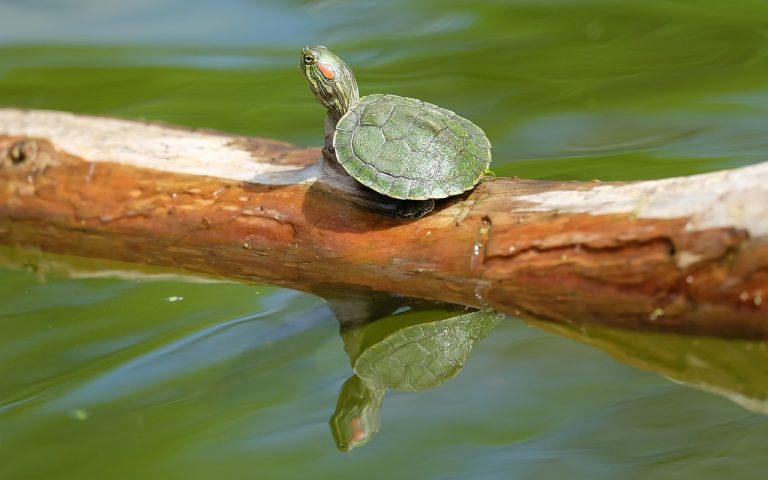
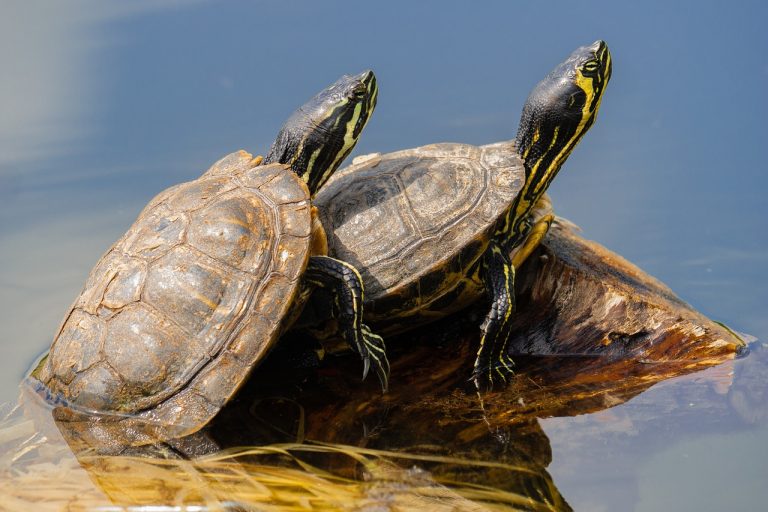
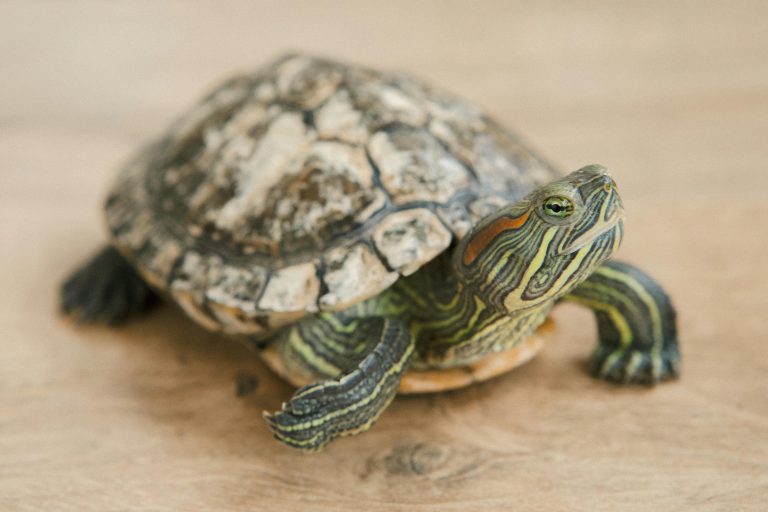
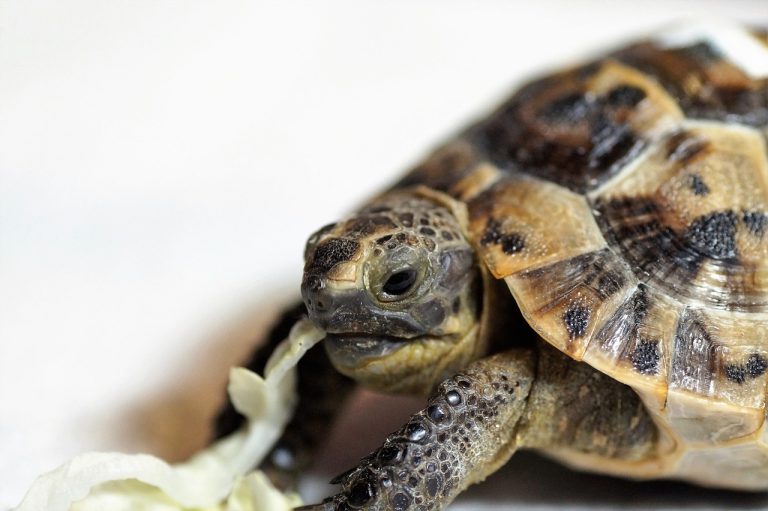
![Turtle Vs. Tortoise Vs. Terrapin [Difference Chart]](https://spreadhapiness.com/wp-content/uploads/2024/04/terrapin-1-768x576.jpg)